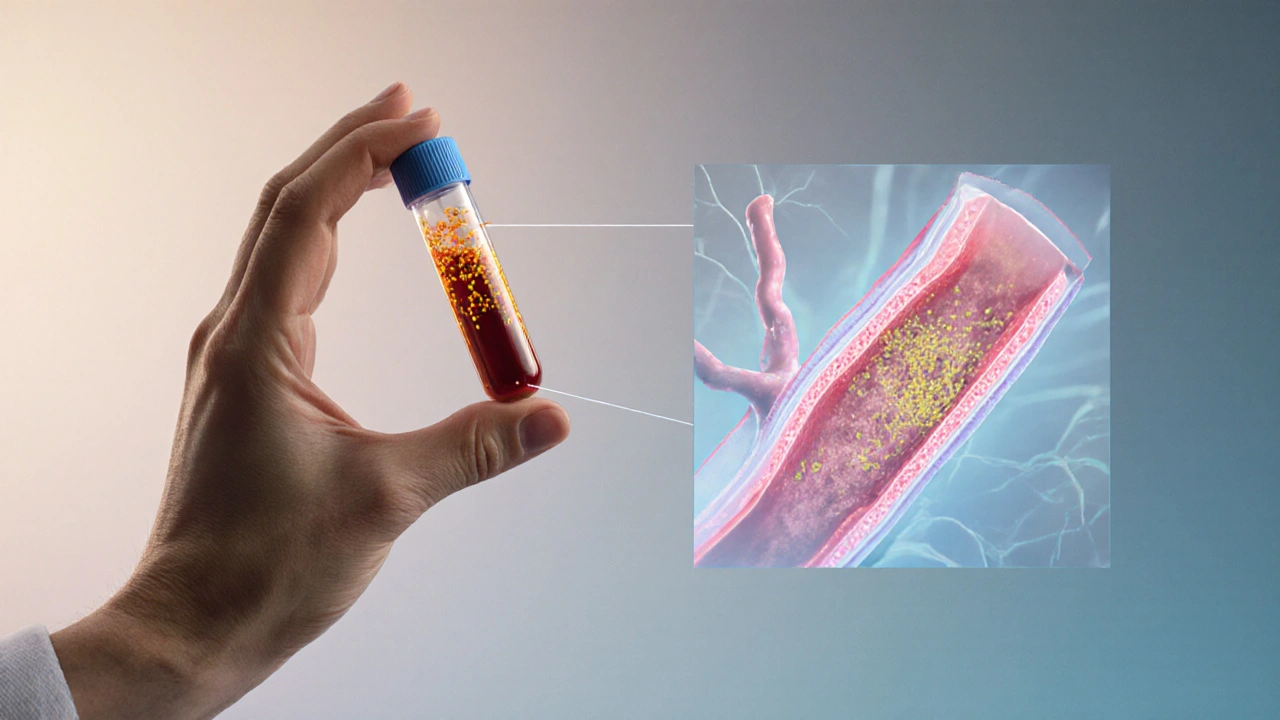Explore how high cholesterol drives plaque buildup, leading to coronary artery disease, and learn practical lifestyle and medical steps to protect your heart.
High Cholesterol: What It Is, How It Affects You, and What Actually Works
When you hear high cholesterol, a condition where too much fatty substance builds up in your blood, raising your risk for heart attacks and strokes. Also known as hyperlipidemia, it doesn’t cause symptoms—but it’s quietly damaging your arteries every day. This isn’t just about eating too much butter. It’s about how your body makes, moves, and clears cholesterol, and what you can actually do to fix it.
LDL cholesterol, often called "bad" cholesterol because it sticks to artery walls and forms plaque is the real villain. Statins, a class of drugs that block cholesterol production in the liver like rosuvastatin are the most common fix—used by millions because they lower LDL by 30% to 50%. But drugs aren’t the only answer. plant-based diet, a way of eating centered on whole foods like beans, oats, nuts, and vegetables has been shown in studies to drop LDL as much as statins, without side effects. And it’s not magic—it’s science. Oats bind cholesterol in your gut. Beans slow its absorption. Nuts help your liver clear it faster.
What most people don’t realize is that high cholesterol isn’t just one problem. It’s tied to inflammation, insulin resistance, and even gut health. That’s why some people stay high in cholesterol even on a low-fat diet—they’re eating too much refined sugar or processed carbs. Others take statins but still struggle because they’re not moving enough. The truth? There’s no single fix. But there are proven paths. You can lower it with diet, with medicine, or with both. And you don’t need to be perfect—just consistent.
Below, you’ll find real comparisons and guides from people who’ve been there: how rosuvastatin cuts inflammation, how a plant-based meal plan actually works in practice, and why some cholesterol-lowering supplements fall flat. No fluff. No hype. Just what works—and what doesn’t—based on real data and patient experiences.

